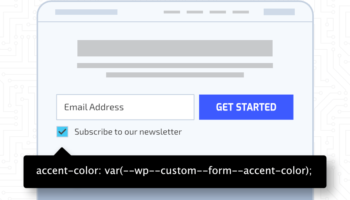Stop telling people things they already know or things that have no value. Getting rid of the mumbo jumbo that everyone uses to describe their company and start digging into the reality of what you actually deliver.
Question: What do these two sentences have in common?
Our professionals collaborate with forward-thinking organizations to create low-cost, scalable, high-value solutions that tie to business strategy and help outperform market rivals.
-Unnamed Fortune 500 Company
My Cat’s breath smells like catfood.
-Ralphy Wiggam, The Simpsons
Answer: They both focus on assumed competence and say nothing of value.
Even big companies make mistakes and survive in spite of themselves. Obviously, our example Fortune 500 company is successful, but I am sure they did not get there by delivering meaningless marketing driven messages to their clients or prospects. In order to deliver value, you have to be honest about what you really do and why you are a good choice. No matter what you offer – a service or a product– you need to be the honest with your customers as it relates to their situation – not yours. Your marketing strategy should reflect your real value to them and be about them, not about you. No one really cares about how much you value what you do and how cool you can make it sound.
In the statement by Ralph Wiggam, it is assumed that a cat’s breath will smell like catfood. All cats eat catfood! Is is also assumed that the services offered by our example company will help “outperform market rivals.” If their service helped you under perform your market rivals, than why would you use them?
A cat is a cat, and it has the characteristics of a cat. If Ralph went on to say, that “My cat is very friendly, only cries when it gets wet or is hungry, is afraid of thunder and loves to sleep at the end of my bed” – now we are learning about why that cat is a better cat for Ralph. We are learning the important things that we need to know about Ralph’s cat that will help us decide if his cat or a cat like his, is a cat would like to have a relationship with. With our example company, we still don’t know what type of solutions they offer. Once thing we do know… trying to define an all encompassing value in 15 words or less is bound to create some confusion.
Dollars to Donuts
The real value for our example company is probably not “low cost, scalable, high value solutions” since that defines nothing tangible. A dozen donuts, for example, could be considered a low cost, scalable, high value solution. They are reasonably inexpensive, can serve one very hungry person or up to 12 moderately hungry people and offer high value when considered the only breakfast at the table. Our box of donuts can even be “seamlessly integrated” with other breakfast solutions to create the “scalable,” “world class,” “best of breed,” “global solution” known worldwide as the Continental Breakfast.
To avoid the common mistake of delivering meaningless marketing messages it is important to honestly understand what your company does in the eyes of your customers. No customer cares about your self gratifying idea of what you do, they only care about what you can do for them!
If something is assumed, don’t mention it. We assume a cat’s breath smells like cat food, we assume that a company will say they are world class and best of breed, so don’t bother telling us. Tell us the things we don’t always hear. Find where you can relieve my pain, help me grow, help me do more with less, and MOST IMPORTANTLY, give me confidence in our relationship and I will listen.





